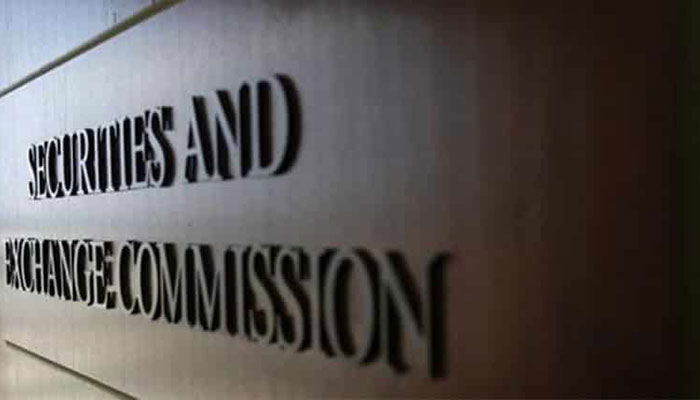NAB harassment preventing staff from working: SECP
SECP policy board chairman says institution being weakened by interference in its working
October 16, 2019

KARACHI: The head of Securities Exchange Commission of Pakistan (SECP) Policy Board Khalid Mirza has said the institution was being weakened by interference in its working.
Speaking to Geo News programme Aaj Shahzeb Khanzada Kay Saath, Mirza said due to unnecessary harassment by National Accountability Bureau (NAB), the staff was not prepared to work. “The cases being investigated by NAB against us prima facie do not involve any wrongdoing by our officers. I fail to understand their motivation and do not know who has instigated all this. One of our officers was detained by NAB for nearly 50 days and then we were asked to conduct a probe if he was involved in any wrongdoing,” he said.
He added the SECP must inform the court after carrying out the probe. “Our primary loyalty lies with the staff of SECP if they are being harassed, we have to defend them,” Mirza added.
He further said they had also informed the federal government but there was no response from them. He said he was not liked by many in the top government circles. “ A few days ago I was dismissed from SECP but I am working here due to the high court stay order. I had not done naything wrong,” he said.
Mirza said the SECP was also under a severe crisis due to recruitment of staff without merit in the last 4-5 years. He added, there was a lot of interference in their work. “Both the government and certain market forces are abusing and exploiting the SECP,” he said. He claimed some of these market leaders belong to the international mafia as well.
The chief added market fluctuation was not necessarily dependent on its strength. He said 18-20 people were detained by NAB and were not being released and that no one cared about the situation.
“We have to cooperate with the law enforcement agencies and give them the sought after information. The government must ask them to return our staff and cases,” he said.
Mirza added the government must protect SECP’s autonomy and independence. “No one seems interested in SECP, capital market or the corporate sector,” he added.











